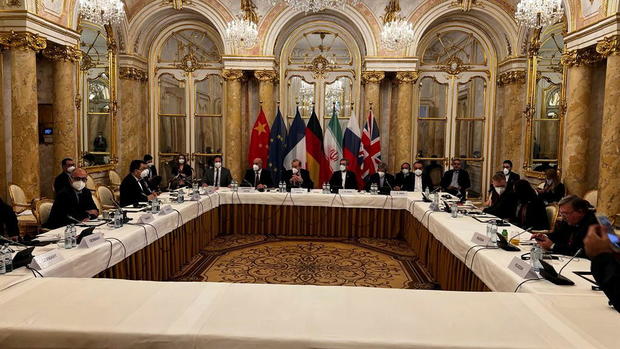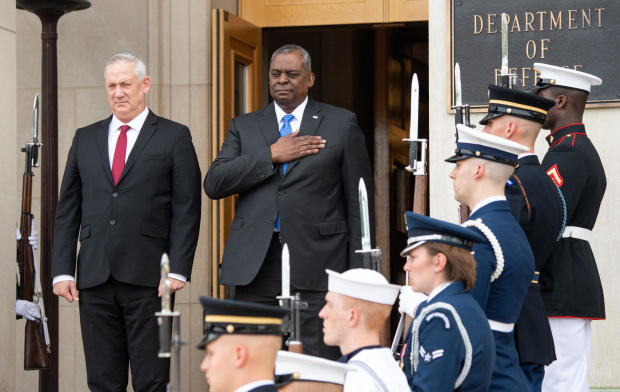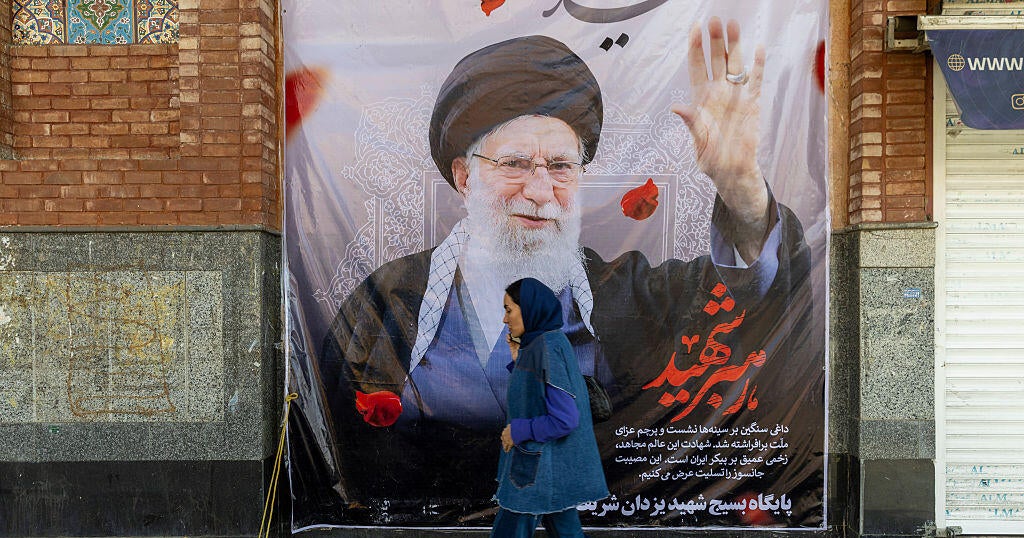U.S. and Israel mull "alternatives we may be forced to pursue" if Iran nuclear talks fail
Iran resumed negotiations on Thursday with the remaining parties to the 2015 nuclear deal, as the U.S. prepared to send a senior envoy to participate in the latest round of the talks. The Biden administration's decision to send special envoy Rob Malley to join the discussion comes amid stern warnings from the White House that time is running out for Iran to show it is serious about coming back into compliance with the nuclear pact.
It also comes as the White House and close ally Israel discuss options the two countries could be "forced to pursue" if Iran does not agree to a new deal, and instead continues advancing its nuclear program in a way that could enable it to build a nuclear weapon.
Will this standoff keep dragging on?
Secretary of State Antony Blinken said earlier this week that "the runway is getting very, very short" for the talks in Vienna, Austria, to yield positive results. He said that when the negotiations between Iran and other world powers resumed at the end of November, "the Iranians did not come to the table with a seriousness of purpose necessary to get back into compliance" with the terms of the nuclear agreement.
The Biden administration has been adamant that Iran will not be allowed to develop a nuclear weapons capability. The 2015 agreement sought to impede any such military ambitions by imposing strict limits on Iran's nuclear program in exchange for relief from crippling financial sanctions.
Former President Donald Trump pulled the U.S. out of the pact unilaterally in 2018, however, prompting Iran to steadily increase its violations of the deal's terms. Most recently, Iran started enriching uranium with advanced centrifuges at a facility buried deep under a mountain.
Iran insists it has no desire or intention to build nuclear weapons, but its escalating violations of the nuclear agreement's terms have likely already reduced the time that it would need for that "breakout," if it decided to build a weapon. Israel and many U.S. officials have always believed that is the regime's true goal.
State Department spokesman Ned Price said on Wednesday that the U.S. "should know in short order if the Iranians will return to negotiating in good faith."
"Alternatives we may be forced to pursue"
Israel, America's closest ally in the Middle East and Iran's archrival, has been pushing for the U.S. to give up on the efforts to salvage the nuclear deal, which it never endorsed.
Israeli defense chief Benny Gantz was in Washington on Thursday for meetings with both Blinken and U.S. Secretary of Defense Lloyd Austin.
Price, the State Department spokesman, said he expected Gantz to discuss with the U.S. officials "the alternatives we may be forced to pursue if Iran shows to us… that it's not willing to return in a substantive, genuine, constructive way to talks in Vienna."
Before he left Israel, Gantz said in a tweet that he would discuss with the American officials "possible modes of action to ensure the cessation of [Iran's] attempt to enter the nuclear sphere and broaden its activity in the region."
"Iran is a threat to world peace and seeks to become an existential threat to Israel," he said in a tweet.
The Reuters news agency cited an unnamed senior U.S. official as saying that Gantz and the Biden administration officials would discuss "possible military exercises that would prepare for a worst-case scenario to destroy Iran's nuclear facilities should diplomacy fail."
While neither the White House nor the Pentagon have confirmed any specific contingency plans, Israel has long advocated for preemptive military strikes against Iran's nuclear infrastructure, should the country deem it necessary to stop Tehran developing an atomic bomb.





